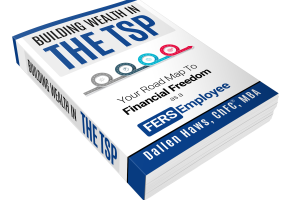When one spouse is a federal employee there are a number of strategies that often make sense to make sure the other members of their family enjoy all the FERS benefits.
But when both spouses are FERS federal employees, there are 3 main decisions that will be a little different than for those that only have one federal employee in the family.
While Both Spouse Are Still Working
For a federal couple who are both working, there are a number of options for FEHB plan types. For those couples that still have kids under 26, the only plan that covers children is a family plan.
But for those couples that either don’t have children or they are all older than 26, they can choose to cover both spouses under one self plus one plan or under two self only plans.
And in many cases, it can be cheaper to do two self only plans. It is definitely worth reviewing your coverage to see which combination could save you money for the same coverage.
If One Spouse Works Longer
While working, federal employees are blessed to be able to pay FEHB premiums with pre-tax money. This means that if you get paid $5,000 a month but pay $400 in FEHB premiums, you’ll be taxed as if you only earned $4,600. This is a really nice perk.
Unfortunately, in retirement this benefit goes away and FEHB premiums must be paid with after tax money. This means that if your FEHB premium costs $5,000 per year before retirement, you’ll need closer to $6,000 or $7,000 to cover the premium after you pay taxes in retirement.
However, a unique tax strategy arises when one of the federal spouses decides to continue working while the other spouse is retired. If one spouse is still working, that means that they are eligible to continue paying their premiums with pre-tax money. In this situation, it may make sense to get the retired spouse on the FEHB plan of the working spouse to maximize this tax benefit.
When Both Spouses Retire
Many feds know that at retirement time you have an opportunity to leave a portion of your pension to your spouse if you were to pass away first. The downside of this however, is that your pension will be reduced while you are both still alive.
One nuance, however, is that if you don’t leave your spouse a survivor benefit, they are unable to continue on your FEHB plan once you pass away. Because of this, some retiring feds leave their spouse survivor benefits not because their spouse needs the income but because they need the health insurance.
But when both spouses are federal employees, they are often both eligible for FEHB by themselves and wouldn’t need a survivor benefit to continue coverage. This often gives them more flexibility in deciding if the survivor benefits actually make sense for them and their retirement plan.


